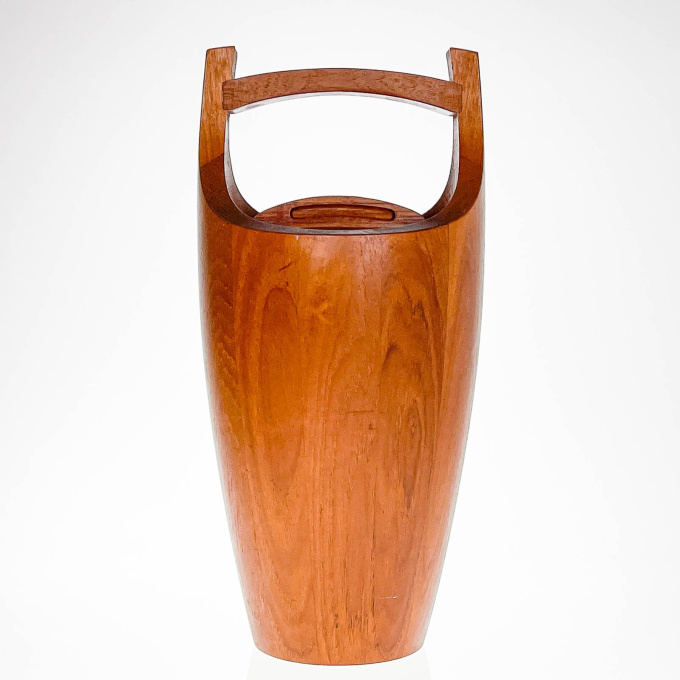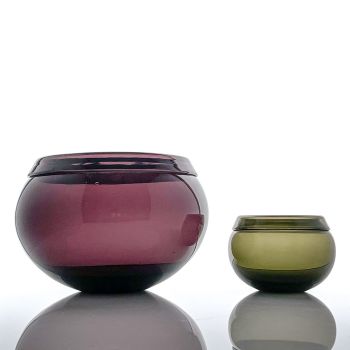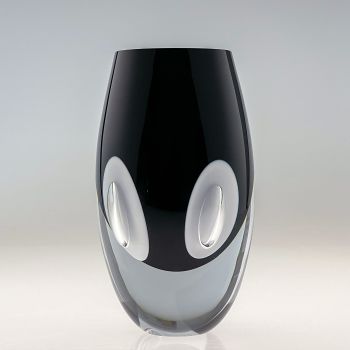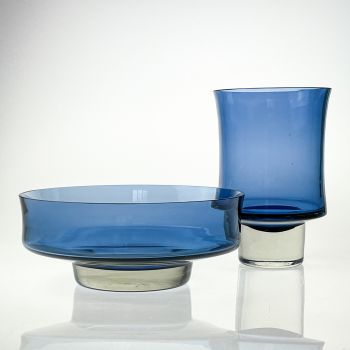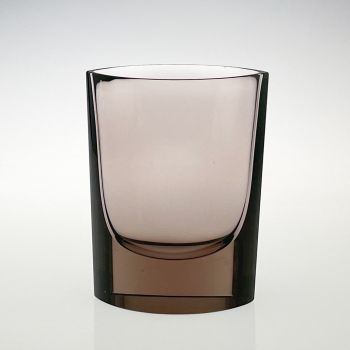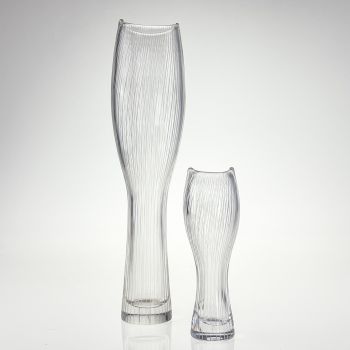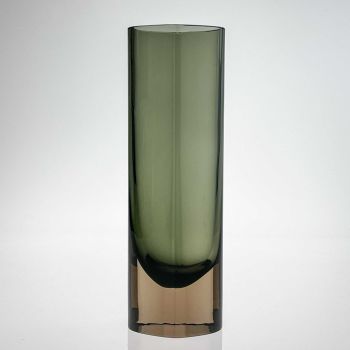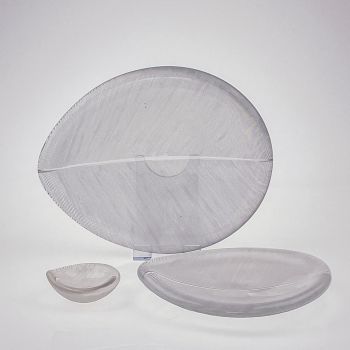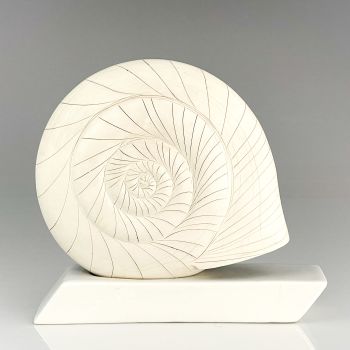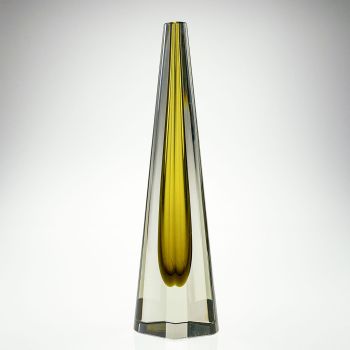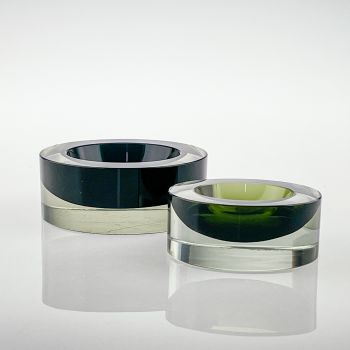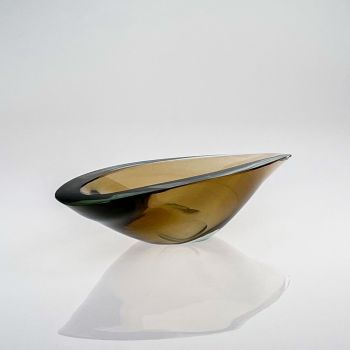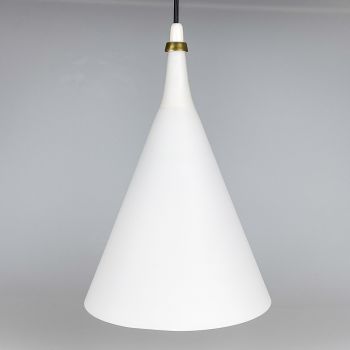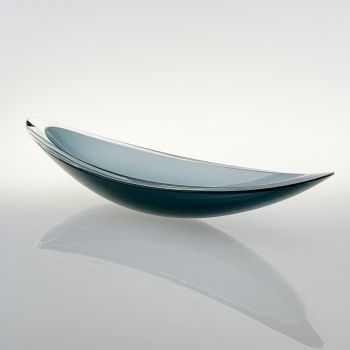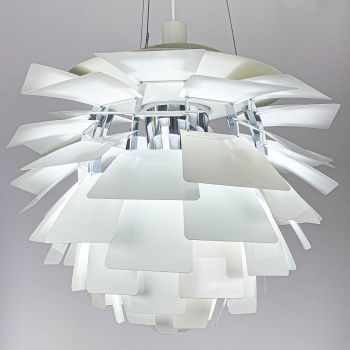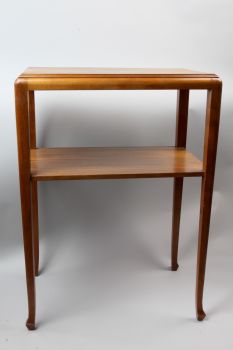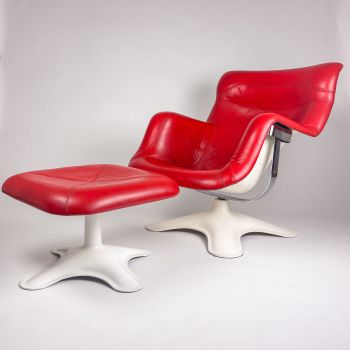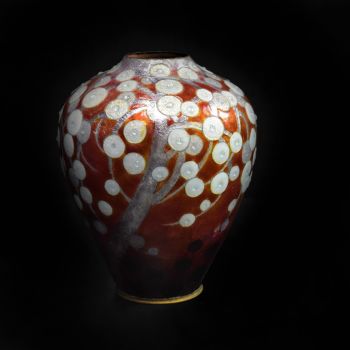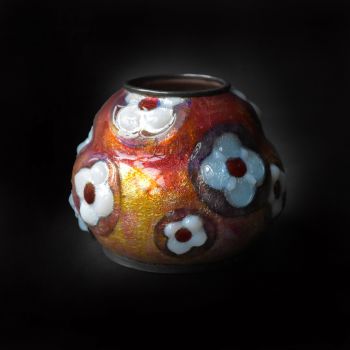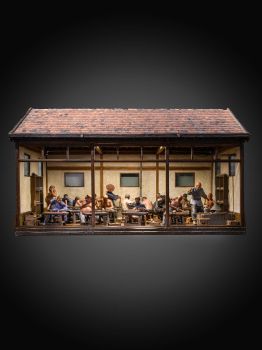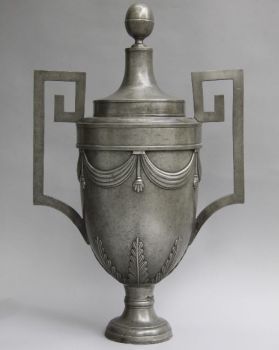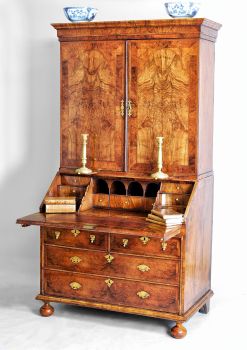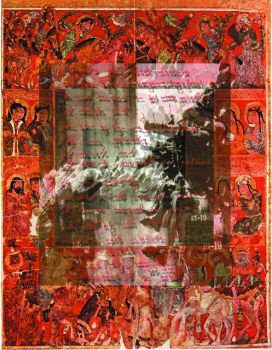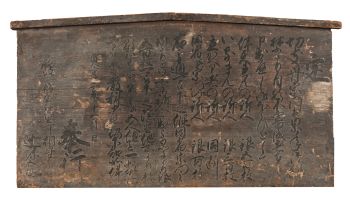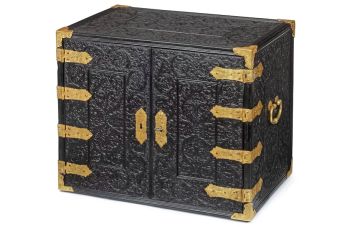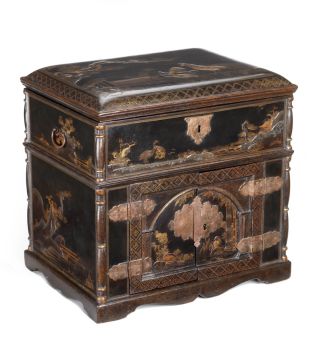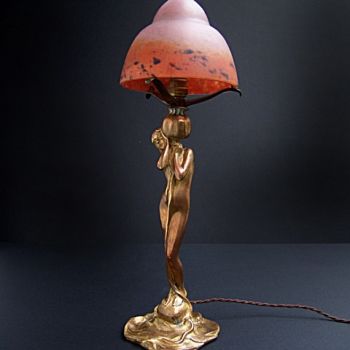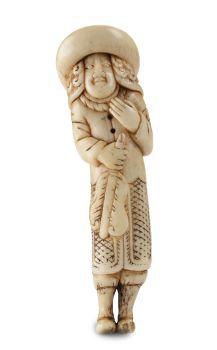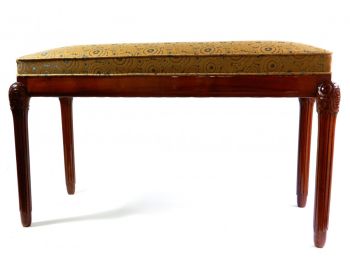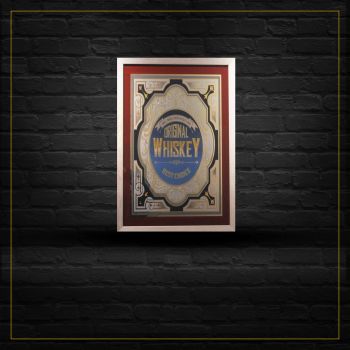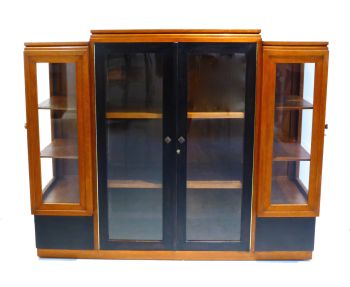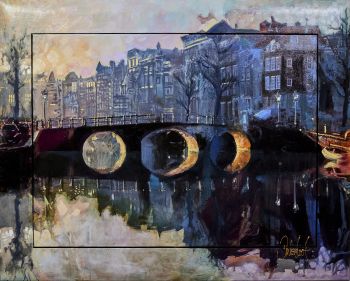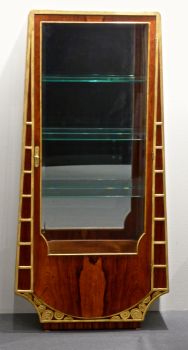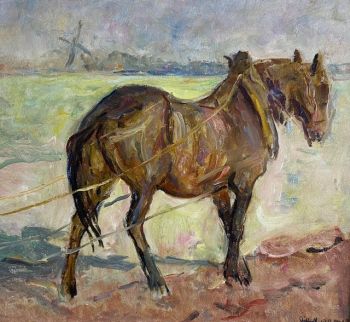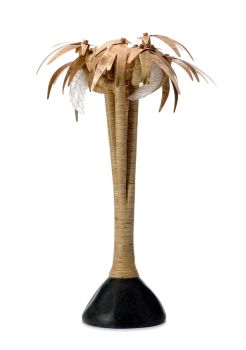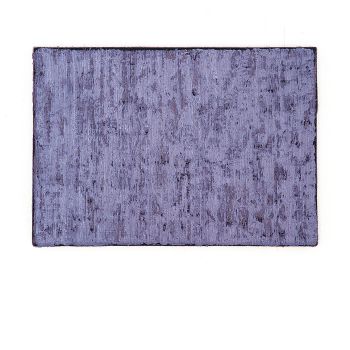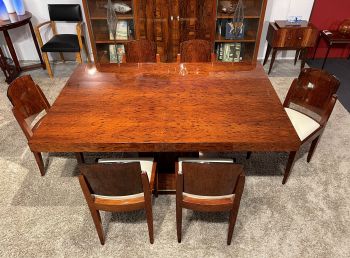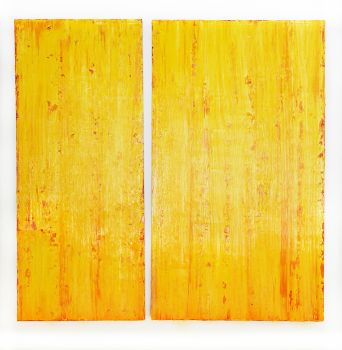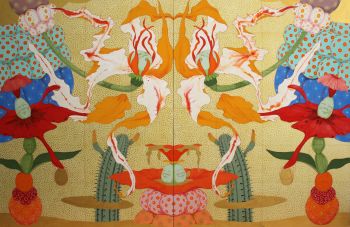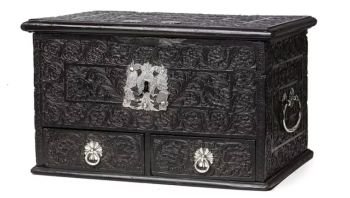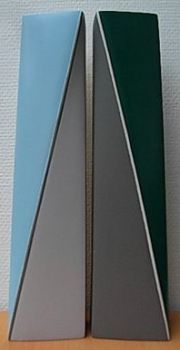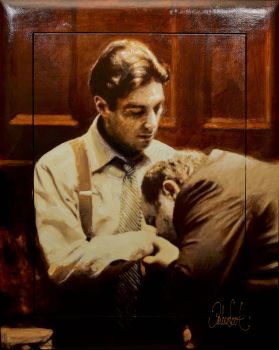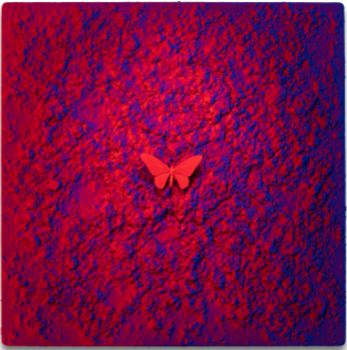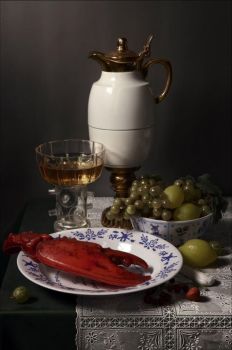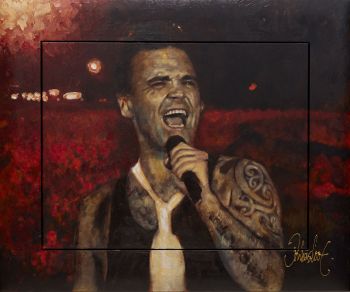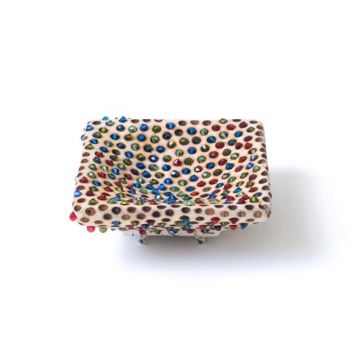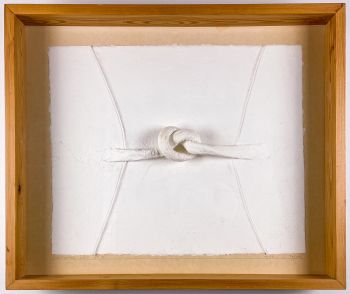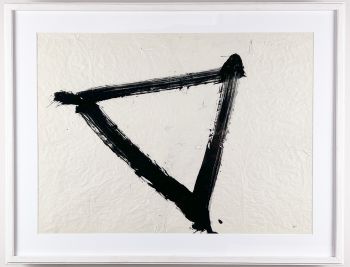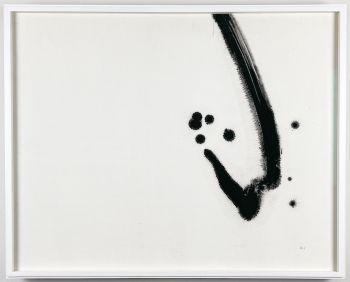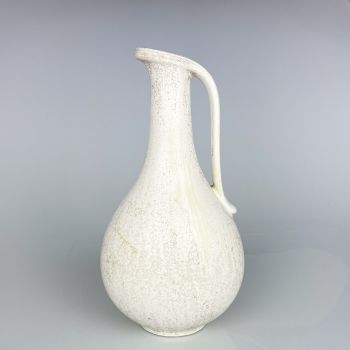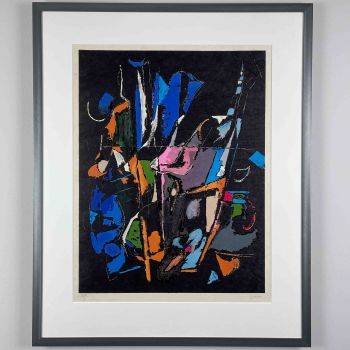A staved teakwood “Congo” icebucket – Dansk Designs, circa 1965 1960 - 1969
Jens Harald Quistgaard
HoutTeakhout
40 cm
ConditionVery good
€ 675
Van Kerkhoff Art
- Over kunstwerkA staved teakwood “Congo” lidded icebucket with a black plastic inner liner. Designed by Jens Quistgaard in 1955 and produced for Dansk Designs probably in the late 1950’s or early 1960’s.
These icebuckets were made in three different size ranges, this being a middle sized example. These objects were made with great craftsmanship.
Strips of solid teakwood (staves) were joined together in a traditional way to form the final shape. The craftsmanship originates from the tubing of buckets and barrels and has been practised in Scandinavia since the middle ages.
The ice bucket is branded underneath the base: “four Ducks mark” – which identifies the bucket as an early production piece – Dansk Designs Denmark – JHQ (Jens Harald Quistgaard) and ©.
About Jens Harald Quistgaard
Jens Harald Quistgaard (Copenhagen 1919 – Vordingborg 2008) was a Danish wood-, metal- and glassware designer and sculptor, known principally for his work for the American company Dansk Designs, where he was chief designer from 1954 until 1983. Jens Harald Quistgaard grew up in an artistic family in Copenhagen. His father, Harald Quistgaard, tought him sculpting at a young age. He was educated as a drawer and silversmith at the technical school in Copenhagen. His apprenticeship he served at Georg Jensen Sølvsmidie.
After World War II Quistgaard set up his own design studio in Copenhagen. His breakthrough as an designer came in 1953–54, where he fashioned the cutlery set Fjord, the first cutlery set that combined stainless steel with handles of teak.
In 1954 was awarded the gold medal at the Triennale in Milan for a saucepan design. For two more reasons 1954 became a very important year for Quistgaard. He received the prestigious Lunning Price – informally called the “Nobel price for design” – and he started to work together with the American businessman Ted Nierenberg.
Together they founded the American company Dansk Designs with Quistgaard as chief designer. His designs were an immediate success in the USA and his designs were synonymous with modern living and Scandinavian style, consisting of clean lines, sculptural form and natural materials.
From the 1960’s onward his success in The united States was followed by success in Europe and Japan. Dansk Designs started their own shop in Copenhagen, in London and in Stockholm, and Quistgaard’s designs were exhibited and sold in Tokyo, Berlin, Paris, Zürich, Melbourne, Johannesburg and many other major cities.
Quistgaard remained chief designer for Dansk Designs until the 1980’s. In 1983 he moved to Rome and in 1993 he returned to Denmark.
His work is represented in many museums all over the world, among others: The Louvre, Paris; Designmuseum Danmark, Copenhagen; The British Museum, London; The MoMa, New York City and the National Museum, Stockholm.
Marked
Branded underneath the base:
"Four Ducks" Mark – Dansk Designs Denmark – JHQ (Jens Harald Quistgaard) and ©
Execution
made for Dansk Designs in Denmark, circa 1965
Condition
Good original condition, some minor scratches, stains and dents. Wear consistent of age and use.
Literature
Mel Byars – The Design Encyclopedia, p. 605-606
Dimensions
Height 40 cm - Over kunstenaar
Jens Harald Quistgaard (23 April 1919 - 4 January 2008) was een Deense ontwerper die vooral bekend werd door zijn creaties voor Dansk, waar hij van het midden van de jaren '50 tot de jaren '80 van de twintigste eeuw als hoofdontwerper werkte. Gedurende zijn carrière ontwierp Quistgaard meer dan 4000 objecten, waardoor hij een belangrijke bijdrage leverde aan het moderne design.
Geboren in Kopenhagen op 23 April 1919, groeide Quistgaard op in een kunstzinnig gezin, waar zijn vader, Harald Quistgaard (1887-1979), een beeldhouwer was en zijn moeder een kunstschilder. Op veertienjarige leeftijd begon Jens Harald Quistgaard te experimenteren met het maken van juwelen en messen. Na zijn opleiding aan de technische school ging hij in de leer bij gerenommeerde vakmensen zoals Georg Jensen en Just Anderson.
Tijdens de Tweede Wereldoorlog was Quistgaard actief in het Deense verzet. Na de oorlog werden zijn ontwerpen tentoongesteld op diverse exposities in Europa en de Verenigde Staten.
Een keerpunt in zijn carrière kwam met de creatie van de bestekset "Fjord" in 1953, waarbij Quistgaard teakhout combineerde met roestvrij staal. Het ontwerp trok de aandacht van de Amerikaanse ondernemer Ted Nierenberg, die Quistgaard benaderde met een voorstel om de bestekset op grote schaal te produceren. Zo ontstond Dansk International Designs in 1954, waarbij Quistgaard werd aangesteld als hoofdontwerper. De Fjord bestekset werd in 1956 geïntroduceerd in Amerikaanse winkels en werd al snel een groot succes.
Naast bestek ontwierp Quistgaard voor Dansk ook een uitgebreide collectie pepermolens, saladeschalen en snijplanken. Hij stond bekend om zijn gebruik van hout in zijn ontwerpen, vooral teakhout, maar ook meer exotische houtsoorten zoals wengé, cocobolo en palissanderhout.
Vanwege zijn innovatieve ontwerpen ontving Quistgaard verschillende prestigieuze prijzen, waaronder gouden en zilveren medailles op de triënnale in Milaan in 1954 en de Lunningprijs. In 1958 werd hij bekroond met de Neimann Marcus Prize. Quistgaard bleef tot in de jaren '80 bij Dansk werken, waar hij voortdurend vernieuwende en tijdloze ontwerpen creëerde.
Jens Harald Quistgaard's erfenis leeft voort in de wereld van design, waar zijn tijdloze en functionele creaties nog steeds gewaardeerd worden door liefhebbers over de hele wereld. Zijn invloed op de Deense en internationale ontwerpgemeenschap zal voor altijd worden herinnerd.
Bent u geïnteresseerd om dit kunstwerk te kopen?
Artwork details
Related artworks
Børge Mogensen
Teak wood “dropleaf” desk – Søborg Møbler, Denmark circa 19551950 - 1960
Prijs op aanvraagVan Kerkhoff Art
1 - 4 / 24Børge Mogensen
Teak wood “dropleaf” desk – Søborg Møbler, Denmark circa 19551950 - 1960
Prijs op aanvraagVan Kerkhoff Art
1 - 4 / 24Børge Mogensen
Teak wood “dropleaf” desk – Søborg Møbler, Denmark circa 19551950 - 1960
Prijs op aanvraagVan Kerkhoff Art
1 - 4 / 24- 1 - 4 / 12

